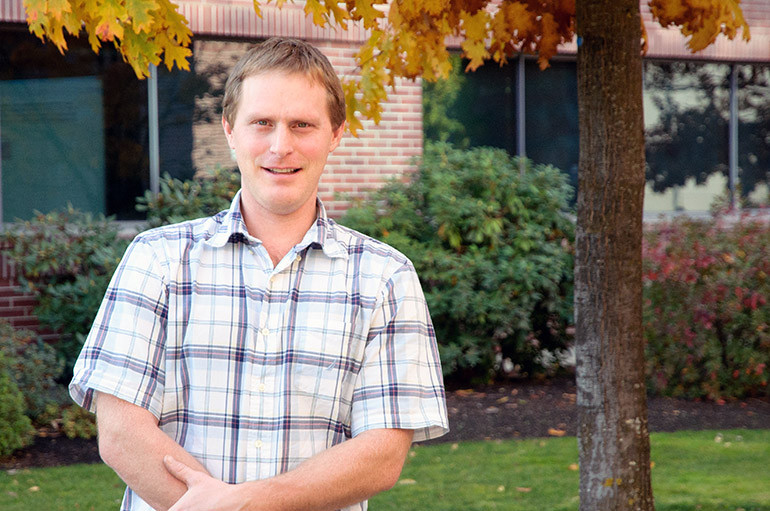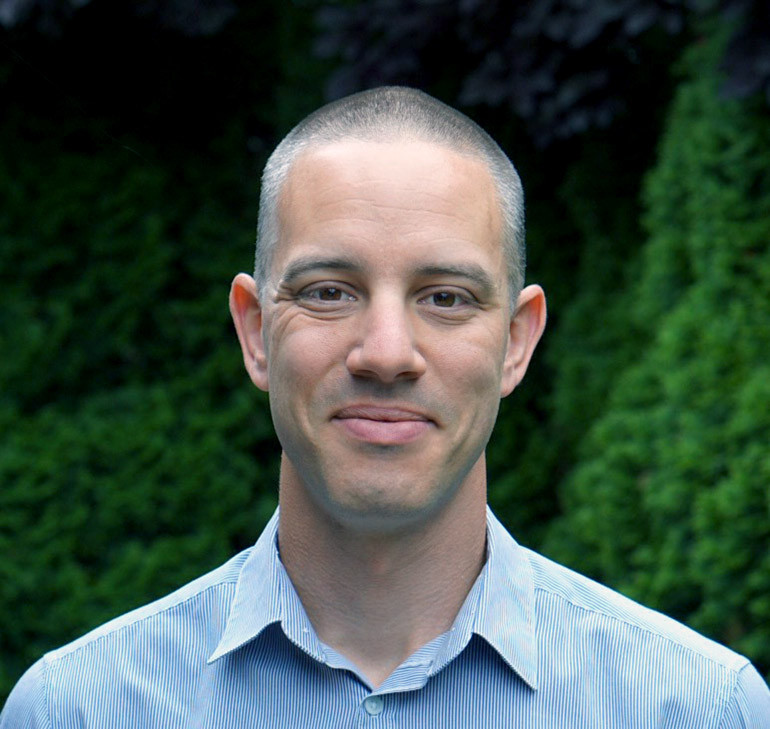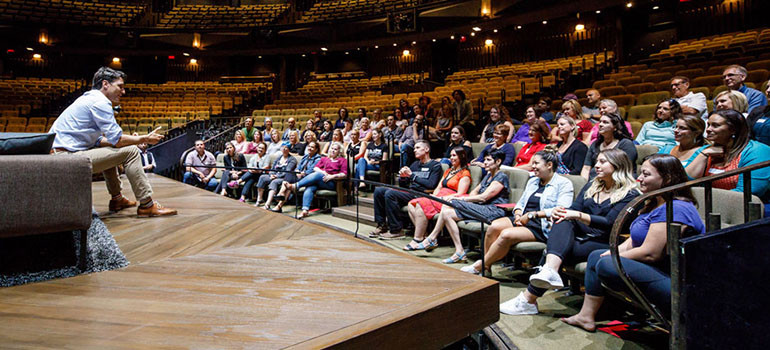
Wesley Zandberg, assistant professor of chemistry at UBC’s Okanagan campus.
New, highly accurate test offers results in hours rather than in days
Wine producers and grape growers have a new, powerful tool at their disposal to help manage the impact of grapes exposed to smoke from forest fires.
Researchers from UBC’s Okanagan campus have devised a new analytical test to precisely and accurately measure the amount of volatile phenols–compounds absorbed by grapes when exposed to smoke that can impact wine flavour–that are present in the fruit prior to wine production.
“Until now, detecting these smoky compounds in grapes required fermenting a small sample over at least ten days and relying on subjective measures like taste and odour,” says Wesley Zandberg, assistant professor of chemistry at UBC’s Okanagan campus. “We’ve developed a test that detects the exact amount of volatile phenols present in the grape. There’s no need to ferment them first and we get results within a matter of hours.”
According to Zandberg, wine grapes that are exposed to smoke from wildfires absorb and metabolize volatile phenols in their skin, which may affect the taste of the wine later on. He says wine producers and grape growers utilizing subjective measures currently have to wait one or two weeks to find out if their grapes are suitable for wine-making. Meanwhile, costs and risk mount as their crops sit on the vine.
“By accurately and quickly measuring the presence of volatile phenols, we’re offering a much better tool to help vineyards and wineries manage the risk from smoke exposure,” says Zandberg. “By knowing precisely whether and by how much each crop has been impacted by smoke exposure, growers and winemakers alike can make informed decisions about whether the grapes should be used or abandoned altogether.”
Zandberg and his PhD student Matthew Noestheden, working in collaboration with several local vineyards and a Kelowna-based analytical company Supra Research and Development, have developed their test after a thorough review of all scientific literature on how Vitis vinifera–the plant that produces wine grapes–absorbs and metabolizes the smoky-flavoured compounds. They then used a series of chemical techniques to isolate the metabolized volatile phenols and measure them to a high degree of accuracy.
But Zandberg is also quick to point out that many wines are aged in smoked oak barrels that contain volatile phenols, so their presence is not necessarily a bad thing.
“We can also apply our technique after the grapes have been fermented and aged to measure phenol levels in the wine itself. This could be hugely beneficial in helping winemakers determine whether wines have enough smoky compounds to match their desired flavour profile after aging in smoked barrels.”
The study was published in the Journal of Agricultural and Food Chemistry and was supported by funding from Mitacs, the Natural Science and Engineering Research Council and the British Columbia Grape Council.

PhD student Matthew Noestheden.
About UBC’s Okanagan campus
UBC’s Okanagan campus is an innovative hub for research and learning in the heart of British Columbia’s stunning Okanagan Valley. Ranked among the top 20 public universities in the world, UBC is home to bold thinking and discoveries that make a difference. Established in 2005, the Okanagan campus combines a globally recognized UBC education with a tight-knit and entrepreneurial community that welcomes students and faculty from around the world. For more visit ok.ubc.ca.
The post UBC researchers create definitive method to detect wildfire tainted wine grapes appeared first on UBC's Okanagan News.





